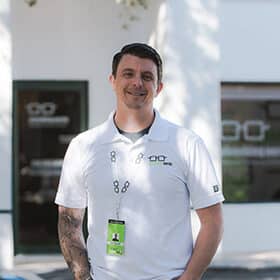Updated: 8/29/2024
Like any trade, plumbing is a great profession to get into. For one thing, you’ll never get bored. You’ll be working at different job sites rather than sitting in an office, doing a wide variety of tasks. Every day is different in the plumbing industry! Plus, job security is great since people will always need plumbing services, after all.
However, you can’t just start applying to plumbing jobs without having some knowledge or experience first. Here’s how to break into the plumbing business and start down the path to a successful, rewarding career.
Breaking Into Plumbing as a Beginner
Starting a plumbing career with no experience is possible and highly rewarding. Here’s how to begin:
- 1. Start as a Helper: Reach out to local plumbing companies for entry-level “helper” positions. Many employers offer on-the-job training and cover certification costs, allowing you to earn while you learn. Be upfront about your willingness to work hard and learn.
- 2. Explore Union and Non-Union Routes: Unions, like Local 110, offer apprenticeships with excellent benefits. Non-union companies often hire and train beginners, sometimes offering bonuses or faster advancement.
- 3. Learn the Basics: Develop foundational skills by watching videos, taking trade classes, or tackling small handyman jobs. Knowing basic tasks like fixing leaks or replacing faucets can set you apart during interviews.
- 4. Be Patient with Pay: Entry-level pay may be modest, but journeymen and master plumbers often earn $60,000+ annually. Starting small leads to significant long-term rewards.
With dedication and a proactive approach, you can turn plumbing into a stable, fulfilling career.
Step One: Apprenticeship
To get started in the plumbing trade, you need to apply for an apprenticeship. These are offered through community and technical colleges, local unions, and the Florida Department of Education. To apply, you must:
- Be at least 18 years old
- Have a high school diploma or G.E.D. (While not always required, having this education is beneficial)
- Pass a drug screening
- Be proficient in English
- Have a valid driver’s license
After you’ve been accepted, you’ll need to complete at least 5 years or 10,000 hours of on-the-job training in addition to 144 hours of class time. During this period, you’ll gain hands-on experience, learning to install, repair, and maintain plumbing systems while ensuring they meet safety and building code standards. At the end of the training period, you’ll have earned a Certificate of Completion from the U.S. Department of Labor, Office of Apprenticeship. This certificate is recognized nationally, and you can take it to any state in the union. You’ll also be eligible to take the exam to become a journeyman.
For more information, contact the Florida State Office of Apprenticeship.
Step Two: Journeyman Training
To be a journeyman plumber in addition to completing your apprenticeship, you must:
- Pass a local licensing exam and pay the required fees
- Have at least 4 years of experience as a plumber
Journeyman plumbers in Florida cannot work without a license, which needs to be renewed every two years. Continuing education is very important to keep up with the licensing requirements and continue your plumbing career.
At this point in your career, you can choose a subspecialty if you like. Some plumbers specialize in natural gas lines; others choose areas like sprinkler systems or septic tank installation and maintenance.
Step Three: Plumbing Mastery
To take the last step after you complete your apprenticeship and journeyman training, you must:
- Pass a local licensing exam (and in some counties a business principles exam as well)
- Have at least 7 years of experience as a plumber, including 2 years as a journeyman
At this point, you’ve reached the pinnacle of your career! As a licensed Master Plumber in Florida, you’ll have the authority to work independently without supervision. Whether you choose to work for another plumber or go into business for yourself, you’ll have the skills and credentials to handle any plumbing problem with confidence.
Be sure to keep up with new developments in the plumbing industry to maintain your license and stay competitive. Continuing education is crucial for staying current with industry trends, code changes, and best practices. In Florida, maintaining your license may require completing a certain number of continuing education hours during each renewal period.
Follow in the Plumbing, Cooling & Electrical Nerds Footsteps
If you’re as nerdy about plumbing as we are, you’ll love moving up the ladder from apprentice to journeyman. But in the meantime, when you need a qualified plumber, give us a call at (239) 215-3330 or send us a message through our website. We have plumbers at all stages of their careers who are happy to provide expert service.
